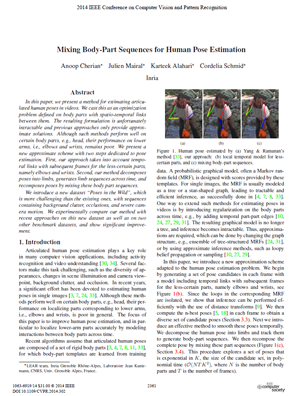Seminar on Current Works in Computer Vision
Prof. Thomas BroxComputer Vision is a very active research field with many practical applications, for instance in quality control, robotics, or driver assistance systems. The goal of Computer Vision is to imitate the flexibility and robustness of the human visual system. Research has made significant progress in recent years particularly due to deep learning. Almost all research in Computer Vision has shifted to deep learning based methods.
In this seminar we have cherry-picked mostly papers from the last ICCV conference. For each paper there will be one person, who performs a more detailed investigation of a research paper and its background and who will give a presentation. The presentation is followed by a discussion with all participants about the merits and limitations of the respective paper. You will learn to read and understand contemporary research papers, to give a good oral presentation, to ask questions, and to openly discuss a research problem.
This seminar will happen in presence only.
|

|
Material:
Seminar organizationGiving a good presentation
Proper scientific behavior
Slides of the introductory lecture
Powerpoint template for your presentation (optional)
Papers:
| Date | Paper | Questions | Presenting student | Slides | Advisor |
| 6.12 | Diffusion with Forward Models | questions | Emmanuel Hofmann | Adam Kortylewski | |
| 13.12 | Tracking | questions | Tobias Buerger | Max Argus | |
| 20.12 | Unsupervised learning | questions | Marta Gulida | Silvio Galesso | |
| 10.1 | Compositionality | questions | Zacharias Haeringer | Simon Schrodi | |
| 17.1 | Feature accentuation | questions | Kathapet Nawongs | Sudhanshu Mittal | |
| 24.1 | Segment anything | questions | Simon Baermann | Jelena Bratulic | |
| 31.1 | ControlNet | questions | Simon Blauth | Leonhard Sommer | |
| 7.2 | Concept discovery | questions | Elias Kempf | Simon Schrodi | |


